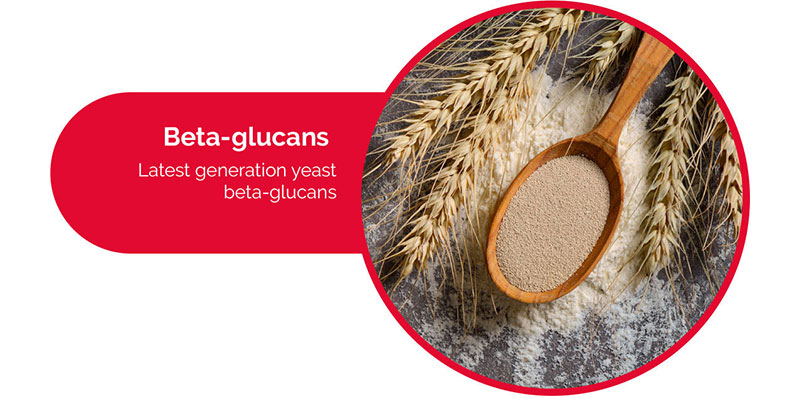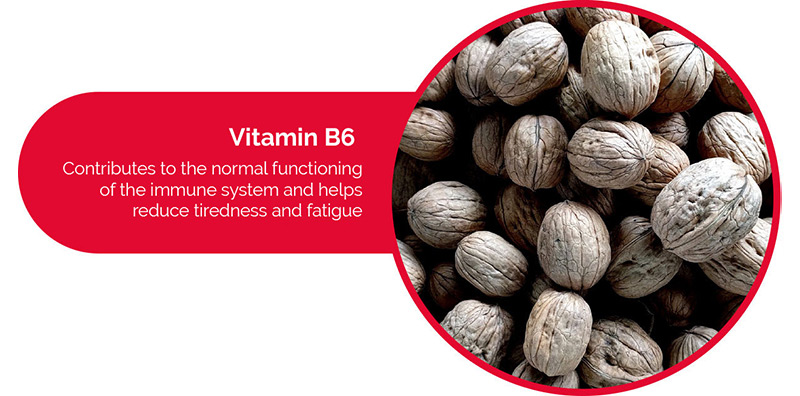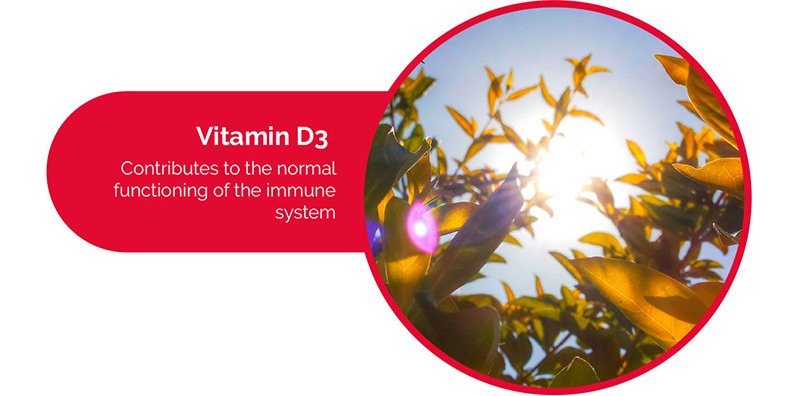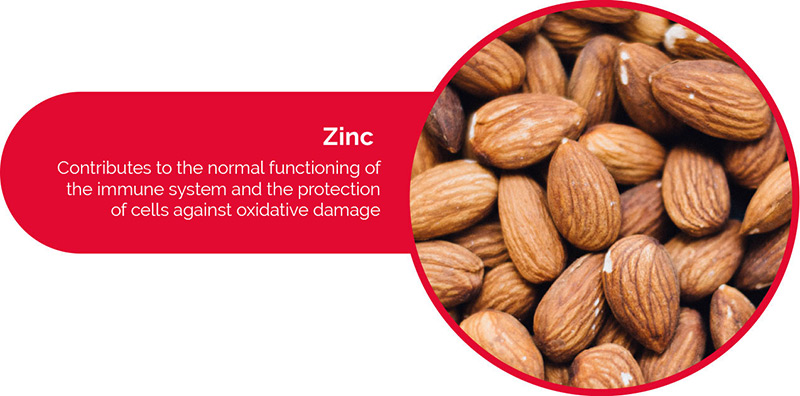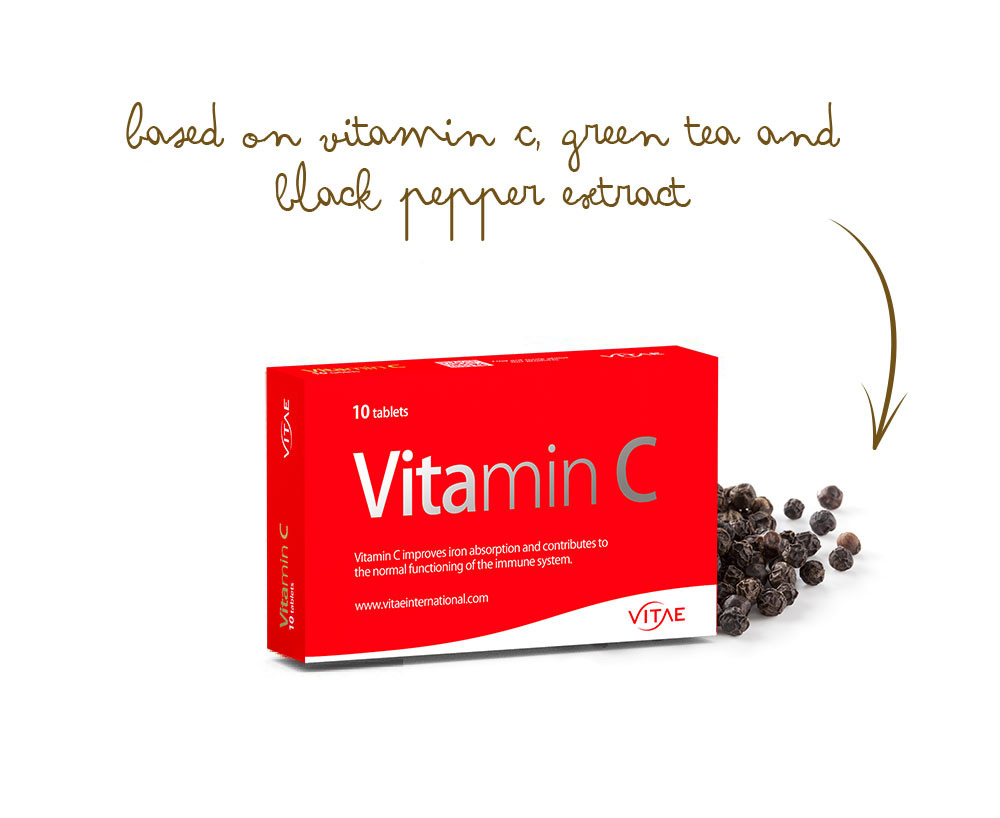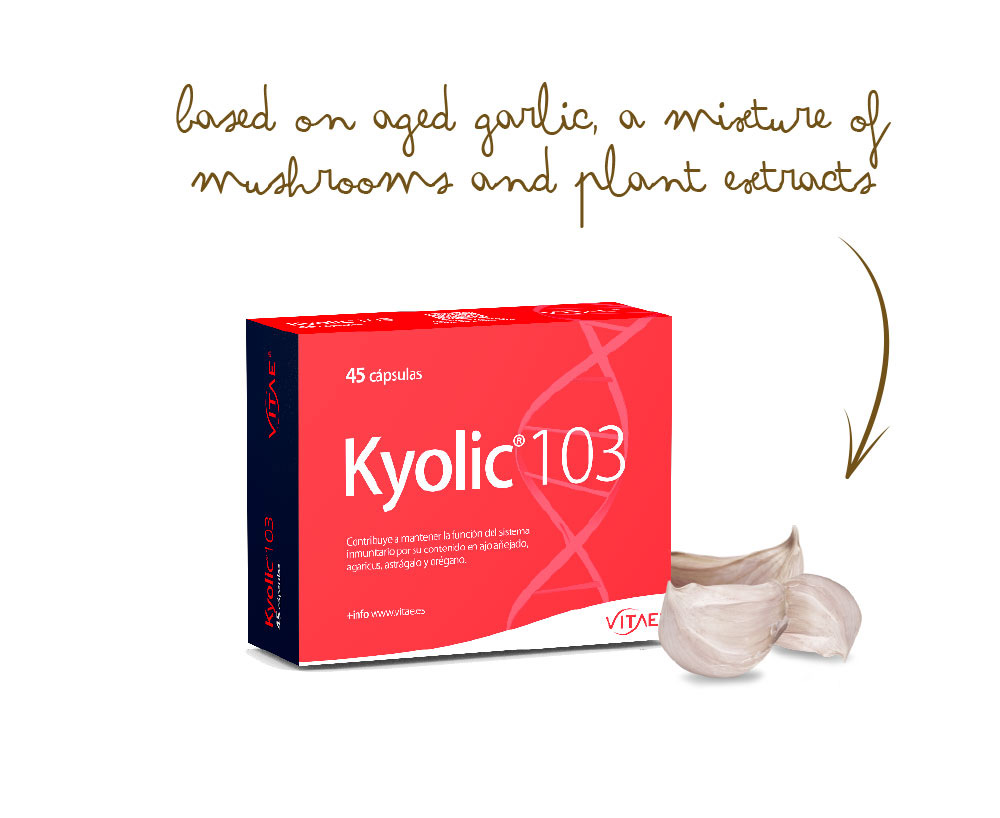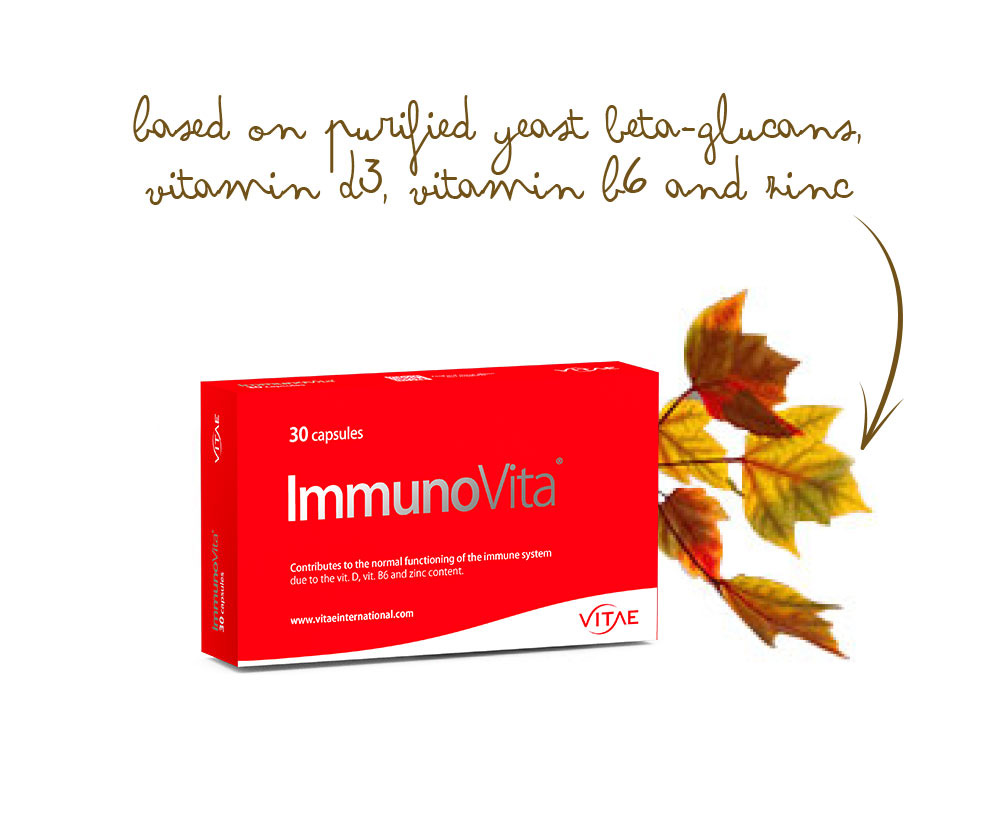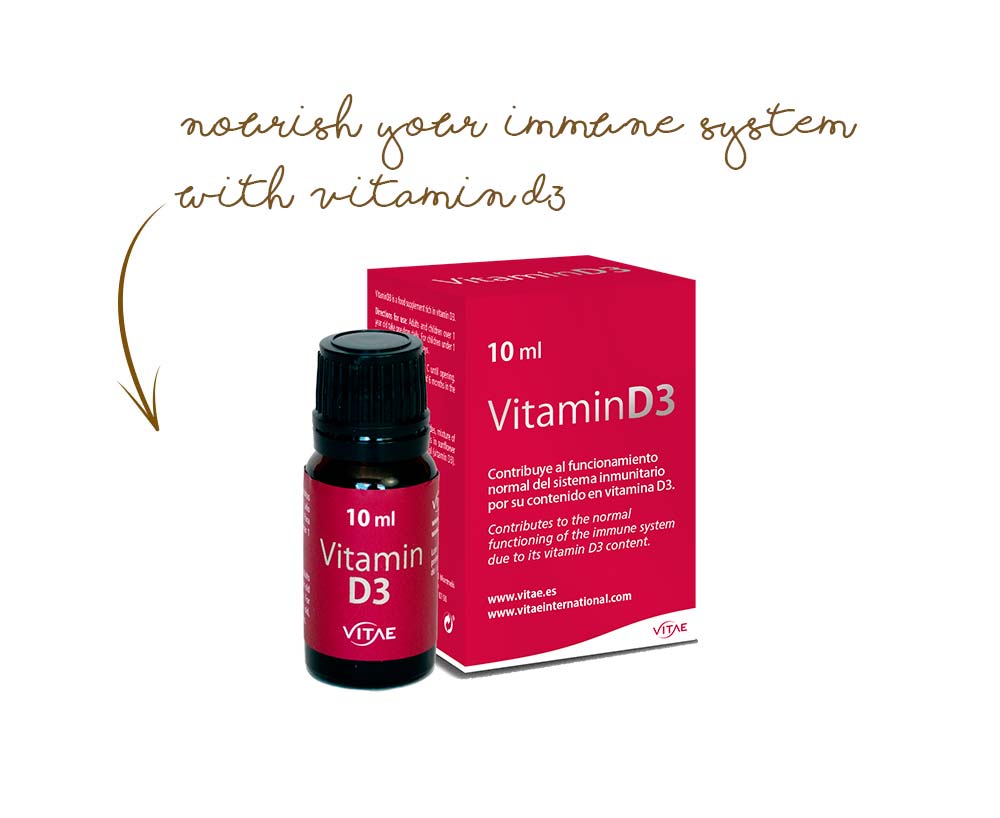

At certain times of the year our immune system can be weakened by the weather, stress, infectious episodes (viruses, fungi and bacteria) among many other things.
A weakened immune system will predispose us to simple diseases that take time to heal (eg flu and colds), excessive tiredness, recurrent infections and feeling of weakness etc.
That is why it is important to be attentive to the signs that our body sends us, in order to prevent, enjoy and appreciate a state of well-being.
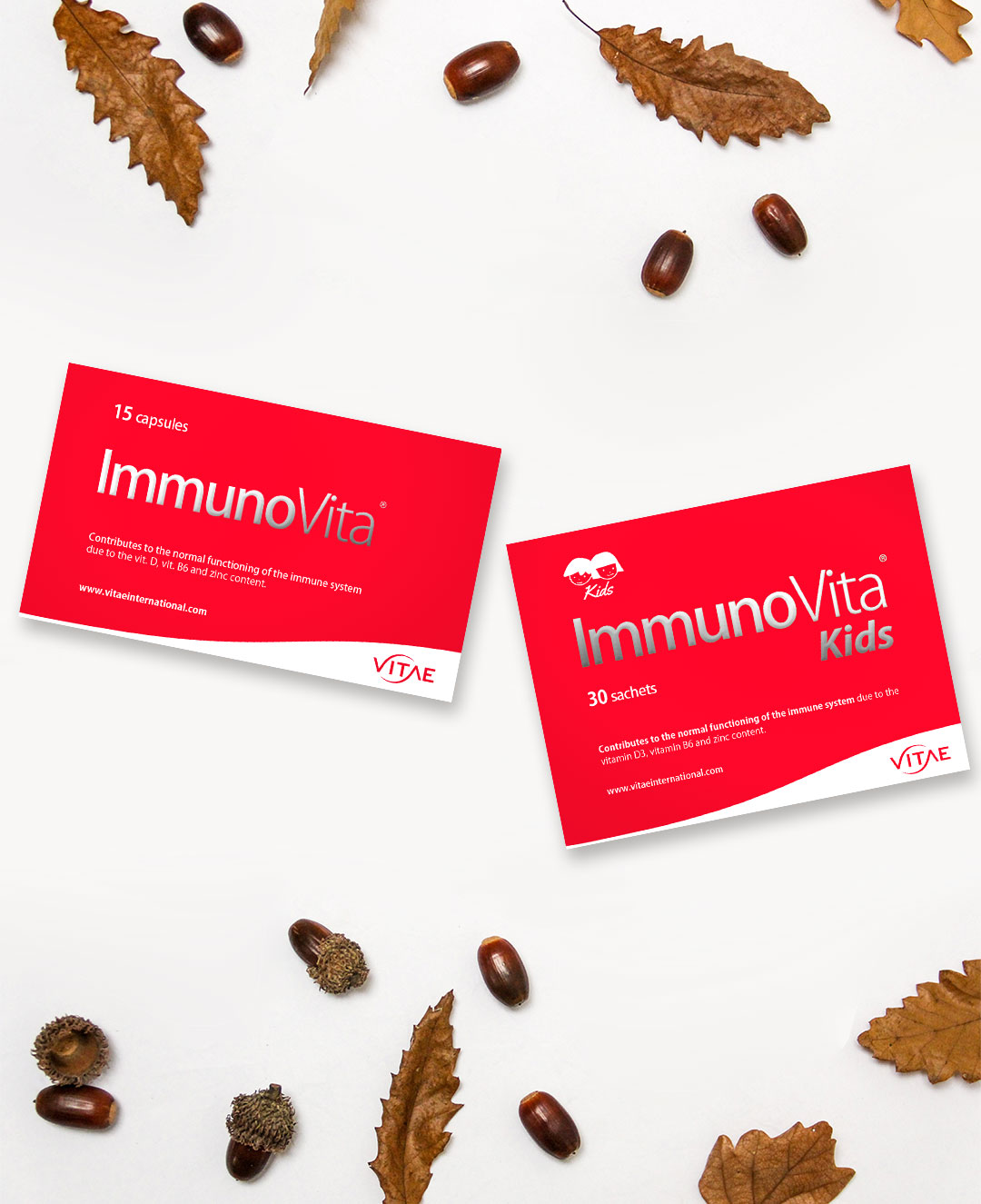
Food supplement based on purified yeast beta-glucans, vitamin D3, vitamin B6 and zinc, with a potent synergistic action

The intestinal flora is our first line of defence
Keeping the digestive system in good condition will help us to have strong and active defences.
In case of having damaged intestinal flora (use of antibiotics, stress, food changes etc.) it will be necessary to repopulate it.
A healthy and balanced diet should provide us with all the nutrients, vitamins and minerals necessary for the normal functioning of our body
Even so, several investigations have shown that, due to different circumstances, this is not always possible. Introducing a food supplement to our diet can be a very effective solution to complement it in these situations..
Vibracell® is a multivitamin, with more than 40 fruits, vegetables, plants, minerals and vitamins, specially designed for periods in which we need extra help.
Solve all your doubts

Beta-glucans are polysaccharides, a molecule that is made up of monosaccharides linked by different bonds. For example, starch is a polysaccharide. In the majority, the monosaccharides that constitute it are glucose molecules.
No. The main difference in polysaccharide digestibility resides in the bond between the monosaccharides (glucoses) that make up the molecule. In the case of beta-glucans, we are not able to break the bond that binds glucoses and, therefore, they will have a very different effect on the body when compared to a digestible polysaccharide such as starch. Subsequently, beta-glucans are a type of polysaccharides considered as fiber, since we cannot digest them.
There are different sources of beta glucans. Beta glucans can be found in certain grains (like oats), mushrooms, algae and some bacteria. Yeasts also produce large amounts of beta-glucans. These different sources usually give rise to different beta-glucans. The essence is the same (many glucoses linked together), but the final molecule may have more or less linearity, or a different conformation or weight. This will cause the molecule to present a greater or lesser biological activity, or simply different.
Furthermore, beta-glucans also differ in concentration depending on the source. The extraction of beta-glucans in yeast can reach up to 87% while in oats it can be extracted up to 80% in the best of cases. This difference makes yeast beta-glucans even more interesting.
Beta-glucans are molecules with many beneficial effects. The intake of beta-glucans has been associated with a reduction in the risk of suffering cardiovascular disease in people at risk - through, in a generalized way, a decrease in LDL (bad) cholesterol -, a decrease in the glucose and postprandial insulin response (levels recorded immediately after consuming food), an antitumor and anticarcinogenic activity and an antimicrobial and promoter capacity of the immune system.
Not all beta-glucans have the same activity and therefore cannot exert the same effects in the body. Orally ingested yeast beta-glucans have been shown to stimulate the immune system through increased immunoglobulins and increased production of defense cells (NK and T cells). Due to its prebiotic nature (that is, we cannot digest the molecule), they also have an antimicrobial effect related to the promotion of beneficial strains in the intestinal tract. These characteristics make it possible to increase resistance to parasitic and infectious pathologies.
The immune system has to be understood as a set of elements and metabolic and signaling routes that are capable of, at a certain moment, generating a response to a foreign agent that can penetrate in our body (inhalation, digestion, intravenous ...).
A strong immune system can be maintained - broadly speaking - with a balanced diet (a balanced and efficient daily nutrient intake), exercising daily and including regular relaxation practices (anti-stress).
The digestive system is our first defence barrier. Anything we ingest must inevitably pass through the digestive tract. There is a large amount of microorganisms, which constitute the intestinal flora. The microorganism profile of each individual will depend on many factors, both genetic and environmental. There are many types of microorganisms that are considered colonizers of the intestinal tract, and, in fact, some of them are considered more beneficial than others because they have been associated with fewer pathologies.
Having an adequately reinforced and protected intestinal flora is of vital importance so that, when it is required (for example, the arrival of a pathogen in the intestine), it is able to overcome danger and thus, directly, also protect ourselves.
There are two ways to take care of our intestinal flora: with the intake of probiotics or with the intake of prebiotics. Probiotics are those microorganisms that are considered beneficial and will help reinforce the intestinal profile of microorganisms that we already have. Prebiotics are molecules that, due to their nature, we cannot degrade and they reach the intestinal flora in a whole form (or semi-whole, for example, beta-glucans). These compounds serve as raw material for the beneficial microorganisms in our intestinal tract to reproduce abundantly. A compound will never be considered as a prebiotic if it does not selectively promote the growth of beneficial microorganisms in the intestinal tract.
Probiotics include many types of fermented foods, although some are more important than others. Yogurt is the most classic probiotic fermented product. The strains included, in addition to fermenting the product and giving the consumer a typical yoghurt texture, can also colonize the intestine and promote a suitable microbiological profile in it. Prebiotics include what is called dietary fiber. While there are many compounds with prebiotic capacity, there are also many sources. As already mentioned, beta-glucans can act as such, but so do cellulose, lignin and other components of plant origin. Fiber is found in foods of plant origin and it is for this (and for many other reasons) that the consumption of vegetables should be varied and high compared to foods of animal origin..
It is one of the three fundamental pillars to maintain a strong immune system. Vitamins and minerals are the first thing that comes to our mind, but a correct contribution of carbohydrates, fatty acids and protein is also important, since they are the source of energy and the main cellular structure for all the elements of the body to function properly (including the immune system).

